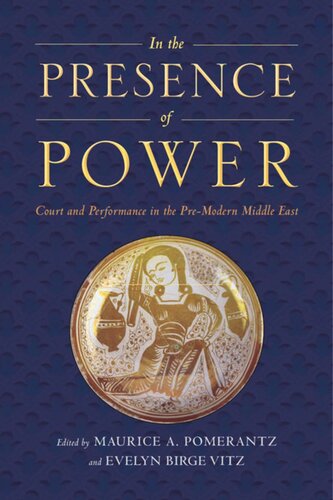

Most ebook files are in PDF format, so you can easily read them using various software such as Foxit Reader or directly on the Google Chrome browser.
Some ebook files are released by publishers in other formats such as .awz, .mobi, .epub, .fb2, etc. You may need to install specific software to read these formats on mobile/PC, such as Calibre.
Please read the tutorial at this link: https://ebookbell.com/faq
We offer FREE conversion to the popular formats you request; however, this may take some time. Therefore, right after payment, please email us, and we will try to provide the service as quickly as possible.
For some exceptional file formats or broken links (if any), please refrain from opening any disputes. Instead, email us first, and we will try to assist within a maximum of 6 hours.
EbookBell Team

4.0
76 reviewsInsights into power, spectacle, and performance in the courts of Middle Eastern rulers
In recent decades, scholars have produced much new research on courtly life in medieval Europe, but studies on imperial and royal courts across the Middle East have received much less attention, particularly for courts before 1500AD. In the Presence of Power, however, sheds new light on courtly life across the region. This insightful, exploratory collection of essays uncovers surprising commonalities across a broad swath of cultures.
The pre-modern period in this volume includes roughly seven centuries, opening with the first dynasty of Islam, the Umayyads, whose reign marked an important watershed for Late Antique culture, and closing with the rule of the so-called “gunpowder” empires of the Ottomans and Safavids over much of the Near East in the sixteenth century. In between, this volume locates similarities across the Western Medieval, Byzantine and Islamicate courtly cultures, spanning a vast history and geography to demonstrate the important cross-pollinations that occurred between their literary and cultural legacies. This study does not presume the presence of one shared courtly institution across time and space, but rather seeks to understand the different ways in which contemporaries experienced and spoke about these places of power and performance. Adopting a very broad view of performances, In the Presence of Power includes exuberant expressions of love in Arabic stories, shadow plays in Mamluk Cairo, Byzantine storytelling, religious food traditions in Christian Cyprus, advice, and political and ethnographic performances of power.